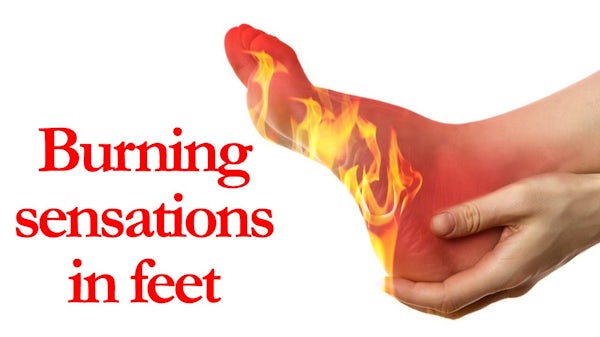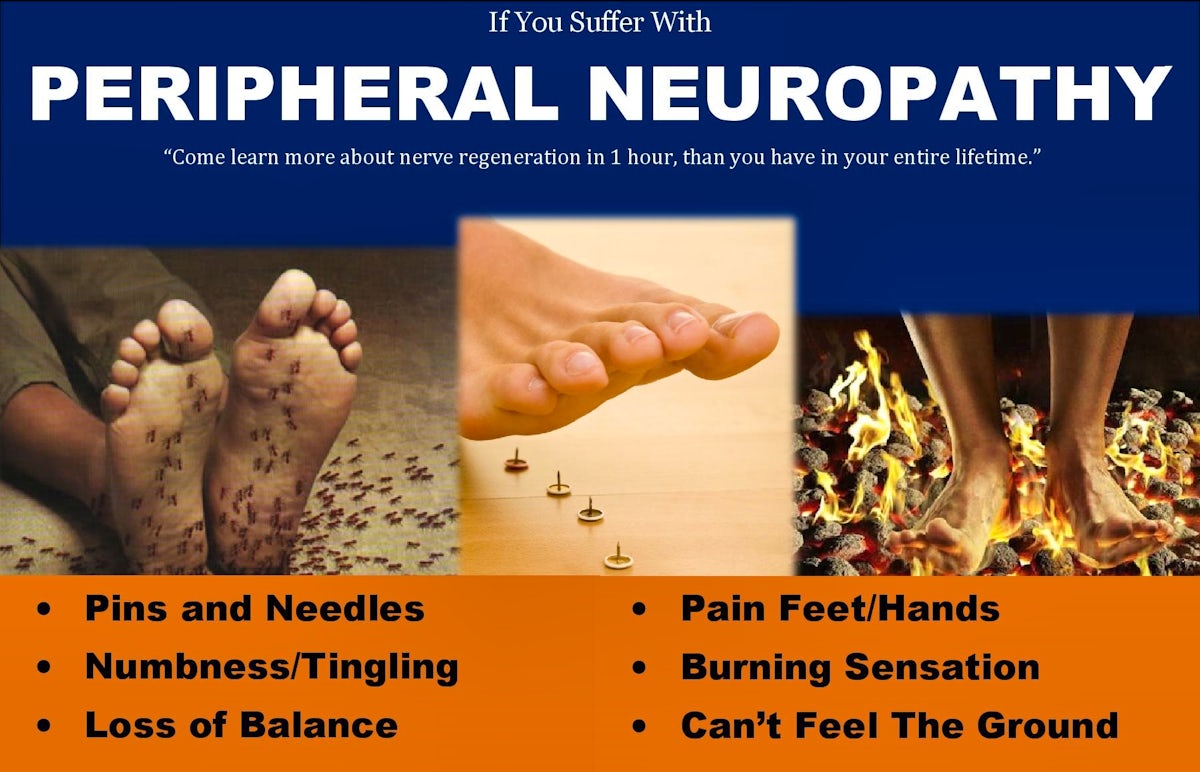We Offer Cutting-Edge Technologies & Services
Oregon Medical Centers provides peripheral neuropathy treatment options in Salem. Our integrated medical clinic helps patients with various medical conditions, including peripheral neuropathy. Whether you have neuropathy in your feet or are seeking treatment for neuropathy in your legs, we can help.
Inflammatory and autoimmune conditions leading to neuropathy can be controlled by natural, non-invasive methods and a more healthy lifestyle. Oregon Medical Centers offer cutting-edge technologies that help patients with peripheral neuropathy return to living the life they deserve, full of health and happiness.
Contact UsWhat is Peripheral Neuropathy?
Peripheral neuropathy results from damage to the nerves outside the brain and spinal cord. This medical condition refers to the various situations involving damage to the peripheral nervous system and peripheral nerves.
The peripheral nervous system is a vast communication network that sends signals between the central nervous system (the brain and spinal cord) and the other parts of the body. Peripheral neuropathy can cause weakness, numbness, and pain, usually in the feet and hands. But it can also affect other bodily functions, including digestion, urination, and circulation.

The Causes of Peripheral Neuropathy
Most instances of neuropathy are either acquired – meaning the inevitability of getting it isn’t present from the beginning of life – or genetic. Acquired neuropathies are either symptomatic, which means they result from another disorder or condition, or idiopathic (meaning it has no known cause). The causes of symptomatic acquired peripheral neuropathy include:
• Physical Injury – This is one of the most common causes of peripheral neuropathy. It can include injuries from automobile accidents, falls, sports, and even medical procedures.
• Diabetes – One of the leading causes of peripheral neuropathy in the United States is diabetes. About 65 percent of those with diabetes will have mild to severe damage to their sensory, motor, and autonomic nerves. This can result in difficulties with everyday activities.
• Smoking – Smoking can cause the narrowing of the arteries, leading to peripheral neuropathy. Vascular and blood problems decrease oxygen supply to the peripheral nerves.
• Autoimmune Diseases – Sjogren’s syndrome, lupus, and rheumatoid arthritis are some systemic autoimmune diseases that cause neuropathic pain. These diseases cause the immune system to attack the body's own tissues mistakenly, and it can directly target nerves.
• Hormonal Imbalances – Hormonal imbalances can disturb normal metabolic processes, leading to swollen tissues that can press on peripheral nerves, which is another cause of neuropathy.
• Kidney & Liver Disorders – These disorders can lead to abnormally high amounts of toxic substances in the blood, damaging nerve tissue.
• Nutritional & Vitamin Imbalances – These imbalances, along with alcoholism, and exposure to toxins, can damage nerves and cause neuropathy. Several medications can cause neuropathy.
• Certain Cancers – Certain cancers and benign tumors can cause neuropathy. Tumors sometimes infiltrate or press on nerve fibers. Paraneoplastic syndromes, a group of rare degenerative disorders triggered by an immune response to cancer, can cause nerve damage.
• Chemotherapy Drugs – The drugs used to treat cancer can cause polyneuropathy in an estimated 30 to 40 percent of users. Only certain chemotherapy drugs cause neuropathy, however.
• Infections – Infections can attack nerve tissues and cause neuropathy. Viruses such as varicella-zoster virus (which causes chickenpox and shingles), West Nile virus, cytomegalovirus, and herpes simplex target sensory fibers, causing attacks of sharp, lightning-like pain.
• Genetic Mutations – These can either be inherited or arise de novo, meaning they are entirely new mutations to an individual and are not present in either parent. Some genetic mutations lead to mild neuropathies with symptoms that begin in early adulthood.

The Signs & Symptoms of Peripheral Neuropathy
The symptoms of peripheral neuropathy depend on the affected type of nerve. Each nerve has a specific function. There are sensory nerves, motor nerves, and autonomic nerves. Signs and symptoms of peripheral neuropathy might include, but are not limited to, the following:
• Muscle weakness
• Gradual onset of numbness
• Prickling or tingling in your feet or hands
• Prickling or tingling in your legs and arms
• Sharp, jabbing, throbbing, or burning pain
• Extreme sensitivity to touch
• Pain during activities that shouldn't cause pain
• Lack of coordination and falling
*Cramping
• Feeling as if you're wearing gloves or socks
• Paralysis
• Heat intolerance
• Excessive sweating
• Bowel, bladder, or digestive problems
• Drops in blood pressure
• Dizziness or lightheadedness
Peripheral Neuropathy Classifications
There are varying classifications for peripheral neuropathy, with over 100 types of identified peripheral neuropathy, each with its symptoms and prognosis.
Symptoms vary depending on the kind of nerves – motor, sensory, or autonomic – that are damaged. Below, we have outlined the difference between motor, sensory, and autonomic nerves.
• Motor Nerves – These nerves control the movement of all muscles under conscious control, such as those used for walking, grasping things, talking, and general movement.
• Sensory Nerves – These nerves transmit information such as the feeling of a light touch, temperature, pain, sharpness, dullness, heat, cold and other sensations.
• Autonomic Nerves – These nerves control organs to regulate activities that people do not control consciously, such as breathing, digesting food, and heart and gland functions.

Diagnosing Peripheral Neuropathy
The small-fiber neuropathies that present with pain, itch, and autonomic symptoms also can be genetic. As our understanding of genetic disorders increases, many new genes are being associated. This bewildering array and variability of symptoms that neuropathies can cause often make diagnosis difficult. A diagnosis of peripheral neuropathy typically includes the list below!
• Medical History – The medical providers at Oregon Medical Centers will ask questions about your symptoms, work environment, social habits, exposure to toxins, alcohol use, risk of infectious diseases, and family history of neurological disorders.
• Physical & Neurological Exams – Our medical providers will look for any evidence of body-wide diseases that can cause nerve damage, such as diabetes. A neurological exam includes specific tests that may identify the cause of the neuropathic disorder and nerve damage.
• Body Fluid Tests – Various blood tests can detect diabetes, vitamin deficiencies, liver or kidney dysfunction, other metabolic disorders, infections, and signs of abnormal immune system activity. Additional tests may be ordered to help determine the extent of the neuropathy.
• Nerve Conduction Velocity (NCV) Tests – These tests measure signal strength and speed along specific large motor and sensory nerves. They can reveal nerves and nerve types affected and whether symptoms are caused by degeneration of the myelin sheath or the axon.
• Electromyography (EMG) – This test involves inserting fine needles into specific muscles to record their electrical activity at rest and during contraction. An EMG tests for irritability and responsiveness, detects abnormal muscular electrical activity in motor neuropathy, and can help differentiate between muscle and nerve disorders.
• Magnetic Resonance Imaging (MRI) – This radiology imaging test of the spine can reveal nerve root compression (pinched nerves), tumors, and other internal problems. The MRI of the nerve (neurography) can show nerve compression.
• Computed Tomography (CT) – This test can show herniated disks, spinal stenosis (narrowing of the spinal canal), tumors, and bone and vascular irregularities, which may affect the nerves.
• Muscle & Nerve Ultrasounds – This non-invasive testing technique can detect abnormalities that may be related to a muscle or nerve disorder.
Treatment Options for Peripheral Neuropathy
Treatment options depend on the type of nerve damage, symptoms, and location of the peripheral neuropathy. The medical providers at Oregon Medical Centers will explain how nerve damage is causing specific symptoms, as well as how to minimize and manage them.
With proper education, some people may be able to reduce their medication dose or manage their neuropathy without medications. Definitive treatment can permit functional recovery over time as long as the nerve cell has not died. As long as the nerve is not dead, integrated and alternative medicine and innovative, cutting-edge treatments can help restore the peripheral nerves.
Treatment to Address the Causes of Neuropathy
At Oregon Medical Centers, we believe in correcting the condition's cause versus prescribing drugs. If a condition, such as peripheral neuropathy, can be treated effectively without drugs or surgery, that is the route that will be chosen.
Our expert team has had excellent results in helping peripheral neuropathy patients, and we've had this success without drugs or surgery. We use integrated and alternative medicine procedures and cutting-edge treatments to help heal, repair, and restore damaged peripheral nerves.
If left untreated, end stages of peripheral neuropathy can leave those suffering from peripheral neuropathy with a sense of hopelessness, having to use a cane, a walker, a wheelchair, or amputations of one of the limbs.
Don't ignore your condition, call us today for a no-charge consultation to see if you're a candidate for our cutting-edge Peripheral Neuropathy treatment.
Contact Us Today for Peripheral Neuropathy Treatment
If you are suffering from peripheral neuropathy, the professional team at Oregon Medical Centers can help. For the last 35 years, we served the medical needs of patients throughout Salem and Aloha. We boast multiple locations to choose from for your convenience. You don’t have to live with peripheral neuropathy or the pain it can cause.
Contact us today to learn more about our herniated disc treatment options or to schedule a free consultation with one of our physicians.
